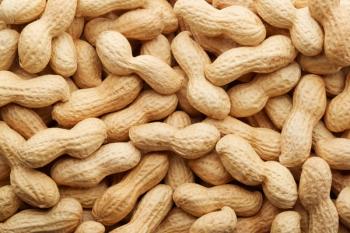
Maternal comorbidities increase risk of poor kidney function in infants
A recent study found that infants born to mothers with maternal comorbidities, such as preeclampsia, had higher risk of poor kidney function.
Maternal comorbidity is associated with greater risk of poor kidney function, according to a recent study published in JAMA Network Open.
While kidney functional capacity is low at birth, it doubles in 2 weeks and is near-adult levels in infants aged 1 to 2 years. Creatinine and urea are used to measure kidney function, making findings mainly based on preterm newborns or newborns with illness. This could cause difficulties in clinical decisions.
Maternal comorbidities have shifted over the past few decades, with diabetes, hypertension, obesity, and preeclampsia seeing increases. There is little known about how these factors affect kidney function in infants.
Better understanding of kidney function could lead to easier detection of kidney disease and acute kidney injury (AKI), along with providing safe treatment. About 60% of drugs are eliminated by the kidneys, making treatment vital in neonates.
Fetal concentrations of creatinine and urea have been associated with greater kidney function. To examine the effects of maternal comorbidities on infant kidney function, investigators measured creatinine and urea concentration in infants aged 16 months or less.
Data were gathered from the Copenhagen Baby Heart Study (CBHS) and the COMPARE study. Umbilical cord blood samplesfrom newborns in the CBHS were evaluated, along with venous blood samples from newborns in the COMPARE study.
The CBHS examined cardiac structure and function in newborns born from April 1, 2016, to October 31, 2018, at participating hospitals. Umbilical cord blood samples were collected immediately after birth, and participants were categorized based on sex and gestational age (GA).
Mothers enrolled in the CBHS were given the chance to also enroll in the COMPARE study if they delivered at Copenhagen University Hospital–Rigshospitalet from May 3, 2017, to November 4, 2018. Infants were excluded if they had a GA of less than 37 weeks or 42 weeks and over, or if they had a birth weight of under 2500 grams.
Venous blood samples were collected from infants in the COMPARE study following the umbilical cord blood samples, along with sampling of venous blood from the mothers and fathers. This occurred about 2 hours after birth and was repeated at 2 months. A final sample was taken from infants and mothers when infants were aged 14 to 16 months.
Standard hospital clinical biochemistry equipment was used to measure creatinine and urea in umbilical blood and venous blood samples, which were recorded in milligrams per deciliter. Obstetric and fetal medicine databases were used to collect demographic and clinical data of participants.
Of the 12,938 infants in the study, about 49% were male and about 51% were female. GA was 37 to 39 weeks for about 41% of infants and 40 to 42 weeks for about 59% of infants. Maternal age had a median of 31 years, and maternal body mass index had a median of 22. About 79% of infants had at least 1 parent with Danish citizenship.
Similar rates were seen in the COMPARE study, and both studies had a low incidence of maternal comorbidities. A lower birth weight and birth length were seen in children born in the CBHS cohort with a GA of 37 to 39 weeks GA compared to those born at 40 to 42 weeks GA.
Children with a lower GA at birth also were at greater risk for placental insufficiency and were more often seen in cases of maternal diabetes, maternal preeclampsia, maternal hypertension, and maternal kidney disease. This caused lower concentrations of creatinine and urea compared to children born with a higher GA.
Maternal preeclampsia was most associated with high concentrations of creatinine and urea in infants, leading investigators to conclude that infants of mothers with preeclampsia should be closely observed for kidney function.
Reference
Mohr Lytsen R, Taageby Nielsen S, Kongsgaard Hansen M, StrandkjærN, Juul Rasmussen I, Axelsson Raja A, et al. Markers of kidney function in early childhood and association with maternal comorbidity. JAMA Netw Open. 2022;5(11):e2243146. doi:10.1001/jamanetworkopen.2022.43146
Newsletter
Access practical, evidence-based guidance to support better care for our youngest patients. Join our email list for the latest clinical updates.








